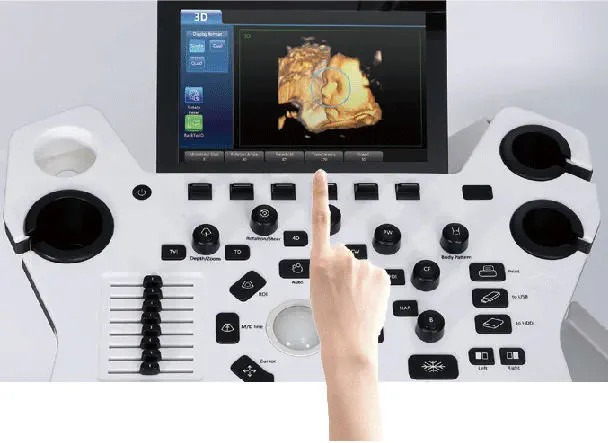Starting your own ultrasound business in the UK can be overwhelming. This article is a step-by-step guide to help you in your journey.
There are different models of ultrasound scanning services someone might want to offer, for example 3D/4D scanning, full ultrasound diagnostic service either static or mobile. So some information below might not apply to all of these services.
What kind of ultrasound Scanning Service you want to offer?
There are various private ultrasound services you can offer:
- 3D/4D Scans only
- 3D/4D Scans and pregnancy scans
- 3D/4D and baby scans, plus general medical scans.
- Just general medical scans
- Static or Mobile ultrasound service
- Any Qualified Provider (AQP)
If you are a lone sonographer starting your own business, you might want to offer just the scans you are confident and comfortable with.
Premises
You need to find suitable premises for your business. These premises will need to be approved for medical use and classified as D1 properties.
You need to consider the location of the service, the surrounding competitors, parking facilities and availability of public transport. You obviously want your clinic to be easily accessible and convenient.
Furthermore, you have the choice of renting your own premises or subletting in someone else’s medical place, for example a GP surgery, a chiropractic clinic or similar healthcare establishment.
If you are planning to offer a mobile service you need to make sure that your equipment is suitable and light enough to be moved from place to place, for example you will have to opt for a laptop ultrasound scanner instead of a cart based one.

Ultrasound Equipment
Although all of us would like the latest and the best ultrasound scanner in the market, compromises might be necessary depending on your budget.
Instead of the latest high-end scanner, you may want to consider a medium-range or a used ultrasound machine.
Another option is to rent an ultrasound scanner until you find your feet and have a suitable budget.
A few years back the ultrasound market was monopolised by companies such as GE, Philips, Siemens and Toshiba. These days there is a large choice with ‘new’ manufacturer’s offering high quality ultrasound machines. These scanners not only cost half as much as the ones offered by the household names, but offer similar image quality in either 2D or 4D.
CQC Registration
You will have to register with the Care Quality Commission (CQC), and you will have to comply with their standards and prove you are safe, effective, caring, responsive and well led. Registration and compliance is required to protect the patients from unreliable providers and harm.
You will have to pay an annual registration fee, which can be found here.
The CQC registration is paperwork intensive and requires large amounts of paperwork such as protocols, fire certificates etc.
Bear in mind that you’re not allowed to start scanning until you have the first CQC inspection, so you will have to budget yourself for maybe one or two months of no trading. So don’t get in a rush to order your ultrasound on day 1 before you even complete the CQC registration.
You might want to employ a practice manager if you do not think you are suitable qualified to deal with CQC requirements.
There is a false belief that if you offer non-diagnostic or bonding 3D/4D ultrasound scans, you do not need to register with the Care Quality Commission.
ICO Registration
You are required by law to register with the Information Commissioner’s Office and comply with the latest data protection regulations.
Marketing
You will need to make sure that people know about your business.
At the most basic level, you will need a website. If you know how to build your own website.. Great. If you don’t, you will have to find a developer to set up the website for you.
You will have to supply the information you want to see on the website to the developer and make sure it is accurate.
Having a website is just the beginning, as it is not good if no1 can find you because you rank on page 20 of Google.
Your website will need search engine optimisation to eventually be on the first page of Google. Be aware of ‘bargain’ SEO optimisation offers as you get what you paid for and some of them are scams.
Search engine optimisation takes time, and our recommendation is that you should start your website at least 3-6 months before you start trading.
You can use Google Ads, where you bid for your ad to be on the top of the first page. With Google Ads you pay per click and price varies depending on the amount of companies bidding for the same search term.
There are various options to build your own website on a budget, nevertheless you need a website that looks professional, informative and trustworthy.
Medical Indemnity Insurance
You will need medical indemnity insurance that hopefully you will never have to claim.
At the time of writing, there is only one medical indemnity insurance underwriter that covers ultrasound clinics with extortionate prices, especially when your scanning involves babies. You can expect to pay around £1500+ a month for a full ultrasound service.
Public liability Insurance
You need public liability insurance in case someone trips or has an accident while they are in the clinic, and you get sued.
When you apply for the public liability insurance, it is more likely that you will have the option of insuring other things under the same cover such as your ultrasound scanner.
Other things you will need
You will also need a computer, a printer, some kind of the back up device so that you can back up the images from the scanner and payment processing facilities.
Conclusion:
Starting your own ultrasound scanning can be very exciting and rewarding. There are however a number of boxes to be ticked and that can be time-consuming and expensive.